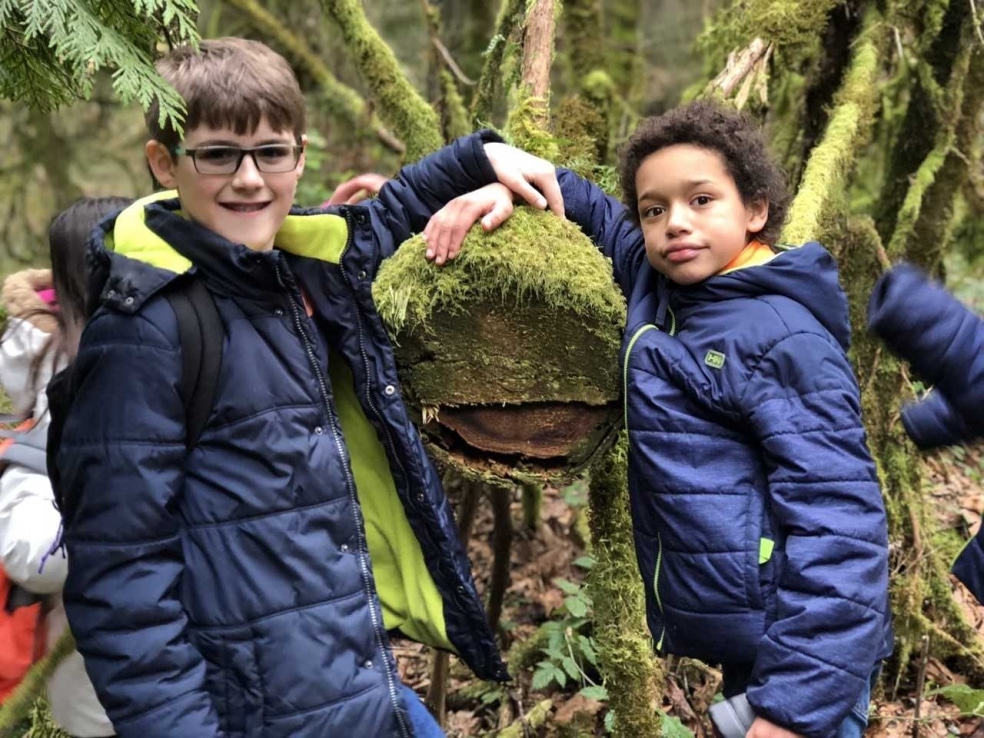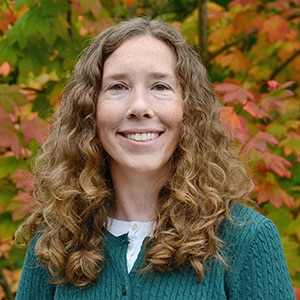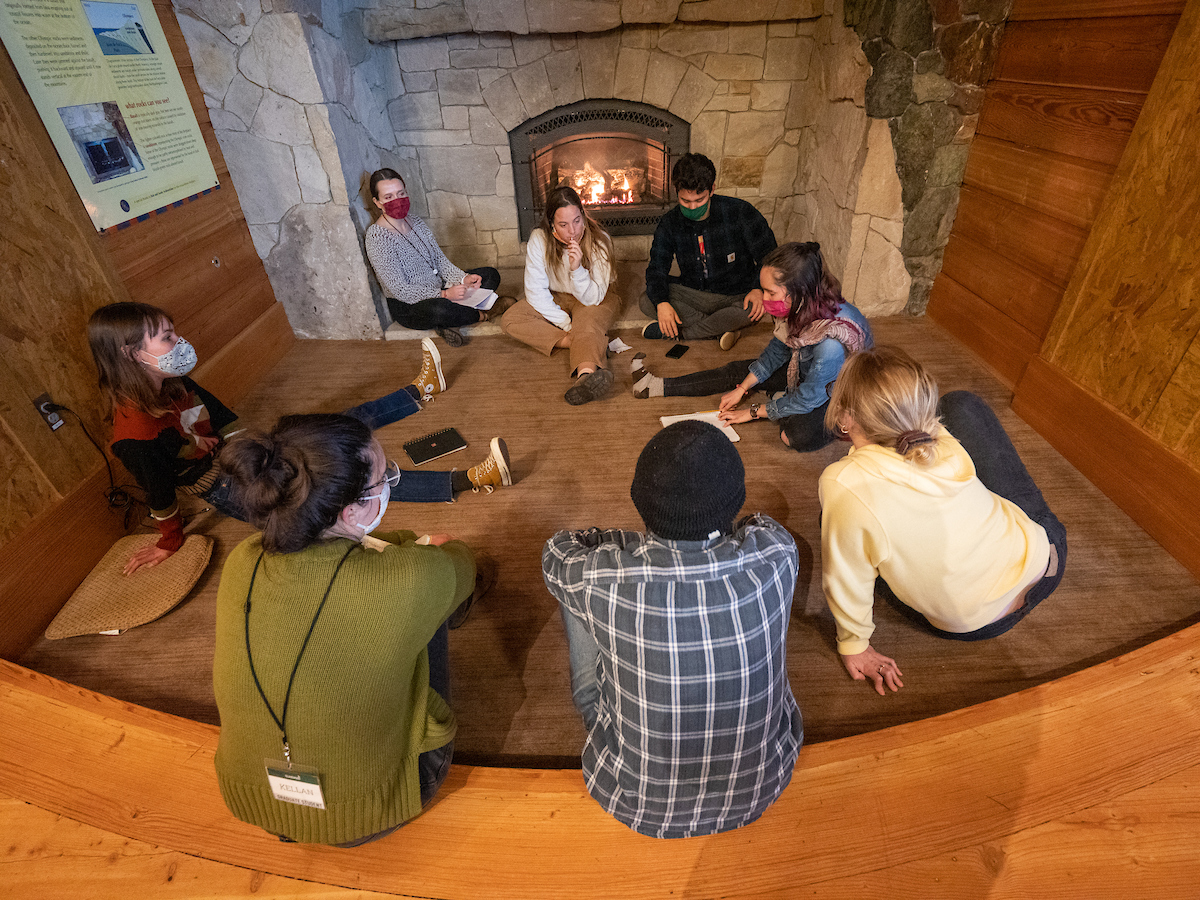Lorrie Wolle has taught elementary school for 23 years, and she’s been coming to the…
Author: Tamar Kupiec
Tom Stonehocker is a self-described “tree nerd.” Blame his hometown of Carnation, WA. Its wild places enchanted him, and “the bounty” of his backyard taught him to recognize plant species from the age of five. Blame his parents. They dug up trees from the side of the road and planted them in their yard. And blame Ms. O’Shea, his “raucous and lively” middle school science teacher who sprinkled lessons on photosynthesis and water cycles with dirty jokes. She got him hooked on tree identification, something he still does today, whether walking in the woods or in the city, where a lone cedar might evoke a bygone native landscape.
Ms. O’Shea made him want to learn. The Evergreen State College, where he studied ecology and natural history, made him want to teach. There he enrolled in a year-long, interdisciplinary program called “Mt. Rainier: The Place and Its People,” which explored the region’s natural and cultural history (from water sheds and indigenous people to business development). The winter session featured environmental education, with the students hosting a Green Conference for kids on campus and visiting elementary schools to lead workshops in ecology. “It’s all fine and dandy to be learning about the natural world,” Tom realized then, “but if it’s me having that experience in isolation, what’s the point?”
Teaching enabled him to share those experiences with others and pushed him to work through his shyness. He came to IslandWood’s Graduate Program eager to develop his skills in place-based learning and be part of a community of people who share his love of the natural world. So far so good, but not everything is as he expected. One day, still newly arrived, Tom stepped back and watched his nine students struggle to balance themselves on a wide, low seesaw as part of a teambuilding activity. It took two tries. They were clever and egalitarian, but to Tom’s surprise, they attributed their success to their freedom from adult intervention. “When students feel as though they are working to please someone else, they are far less likely to be passionate about their learning,” Tom concluded. “It was an important lesson in helping me determine [my role]. When we can act more like facilitators and imagine our students being successful of their own accord… they get to be the owners of their experience.”
Tom chose IslandWood for its model of education, which puts science, community, and environmental stewardship on equal footing. He is the kind of person who will stop everything to admire the flight of an eagle or examine the nest of a white-crowned sparrow. Despite this deeply personal connection to the natural world, he sees it not as a private sanctuary, but as a shared resource. After college, he worked as a landscaper and interned with organizations such as Mountains to Sound Greenway. His wealthy clients, who often owned waterfront property, contrasted sharply with the students he taught in South King County, who had little access to natural resources. Tom fears that places like the Snoqualmie Valley will become the playground of people with privilege, yet he does not advocate treating nature as a museum. Perhaps environmental education will be his way to right these issues of equity and access.
Still, Tom is not sure he will be a teacher. But he will think like one whatever his career. When he looks at a plant or tree, he explains, he tries to discern the “story of the landscape”—the soil, water, and light conditions, its orientation to the sun. This year at IslandWood he will subject himself—his aspirations and affinities—to the same careful and patient scrutiny he would give a tree. This year he will draft his next chapter.










